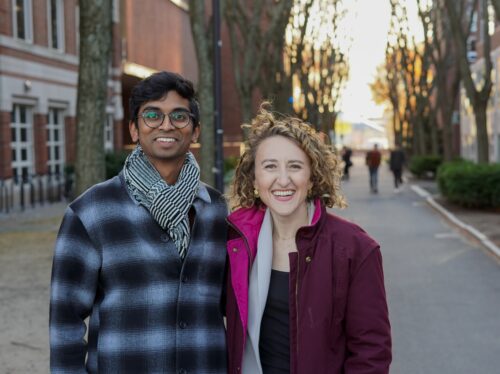Cambridge, MA — There is a large body of research on how systemic racism drives the social determinants of health in communities of color, but much less on how to solve this problem. The Institutional Antiracism and Accountability (IARA) Project, housed at Harvard Kennedy School’s Ash Center, is launching a new research initiative to focus on successful interventions that improve health outcomes and foster an antiracist healthcare system. Supported by a grant from the Robert Wood Johnson Foundation, this new research will expand on existing analysis and evaluate antiracist organizational approaches and policy interventions in healthcare to determine true levers of change.
Specifically, IARA will assess, analyze, and document effective measures of healthcare organizations engaging in internally focused antiracist change. The research, led by IARA Faculty Director Khalil Gibran Muhammad, Ford Foundation Professor of History, Race and Public Policy at Harvard Kennedy School, and Research Fellow Angel Rodriguez, will ultimately result in a series of open-source case studies and a summary findings report to share with both academic and health care communities.
“The dual pandemics of COVID-19 and systemic racism present a timely opportunity to use research at scale to address enduring healthcare inequalities,” says Muhammad. “We expect our research to help healthcare organizations identify and implement effective antiracist strategies to improve the lives of patients and providers.”
This work expands IARA’s portfolio of research to critically evaluate antiracist structures and policies within institutions. This portfolio includes a three-year-long project, supported by the W.K. Kellogg Foundation, to survey international examples of truth-telling and harm repair, including truth commissions and tribunals, to better understand what impact and accountability look like for these endeavors. Additionally, IARA curates the Race, Research, & Policy Portal, a free online resource database dedicated to summarizing and promoting research publications on diversity, racial equity, and antiracist organizational change in private, public, and non-profit organizations.
You can find more information about IARA and sign up to receive further updates on the Project’s research here.
About the Institutional Antiracism and Accountability Project
The Institutional Antiracism and Accountability Project, housed at Harvard Kennedy School’s Ash Center for Democratic Governance and Innovation, believes in working at the intersection of community, academia, and policy to address intellectual and practical questions as they relate to antiracism policy, practice, and institutional change. In order to create and sustain change, the goal of the project is to promote antiracism as a core value for organizations by critically evaluating structures and policies within institutions. The project aims to analytically examine the current field of antiracism with a lens on research and innovation, policy, dialogue, and community involvement.
About the Ash Center
The Ash Center for Democratic Governance and Innovation at Harvard Kennedy School advances excellence in governance and strengthens democratic institutions worldwide. Through its research, education, international programs, and government innovations awards, the Center fosters creative and effective government problem solving and serves as a catalyst for addressing many of the most pressing needs of the world’s citizens.
Contact
Daniel Harsha
Ash Center for Democratic Governance and Innovation
Daniel_Harsha@hks.harvard.edu
Sarah Grucza
Ash Center for Democratic Governance and Innovation
Sarah_Grucza@hks.harvard.edu


